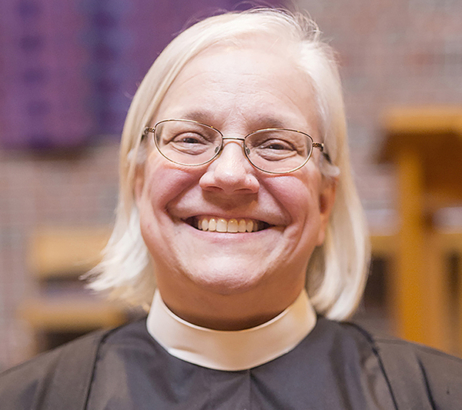Could it be that we are called for such a time as this? (Esther 4:14, paraphrase by Jonathan Rundman)
Last weekend, I was in Las Vegas, Nevada, leading a Bible study workshop for the Grand Canyon Synod Women of the ELCA. If you are not a reader of Gather , the Women of the ELCA magazine, you may not know that I am the author of the four-part Bible study for January through April of this year. In recognition of the 50 th anniversary of the ordination of women as pastors in North American Lutheranism, I was asked to write about vocation.
Vocation, or calling, is a rich theological theme for Lutherans. When I wrote a Gather Bible study for 2017, it focused on a single book of the Bible, Galatians. It was more challenging than I expected to think through how to structure an in-depth thematic Bible study drawing from throughout the Scriptures.
The study is titled “We Are Called!”
The January session focuses on the call of prophets in the Old Testament.
The February session focuses on Jesus calling disciples, the call of Paul, and the call to all Christians to take up the cross and follow Jesus.
The March session focuses on the purpose of vocation: we are called to love and serve our neighbors. The session uses scriptural stories to engage this theme at three different levels: the individual (the parable of Good Samaritan), the social (Joseph in Egypt stewarding food resources to provide for the region during a time of famine), and the political (Esther’s advocacy to prevent the genocide of her people).
The April session focuses on the role of communal discernment in vocation. One of the themes in the book of Acts is how communal discernment in the early Christian community leads to the removal of barriers: barriers of culture and language, physical barriers, the barrier between “clean” and “unclean,” and more.
This process of communal discernment continues in the life of the church today. It was communal discernment that led to the decision in 1970 to allow women to serve as Lutheran pastors. It was communal discernment that led to the decision in 2009 to remove the barriers to rostered ministry for people in lifelong same-gender relationships.
How is discernment at work in your community? What gifts are you discerning, and in whom? What barriers need to be removed? How can you empower others to use their gifts in service of others? And how can Trinity be a resource?
The Rev. Kathryn A. Kleinhans, Ph.D.
Dean



